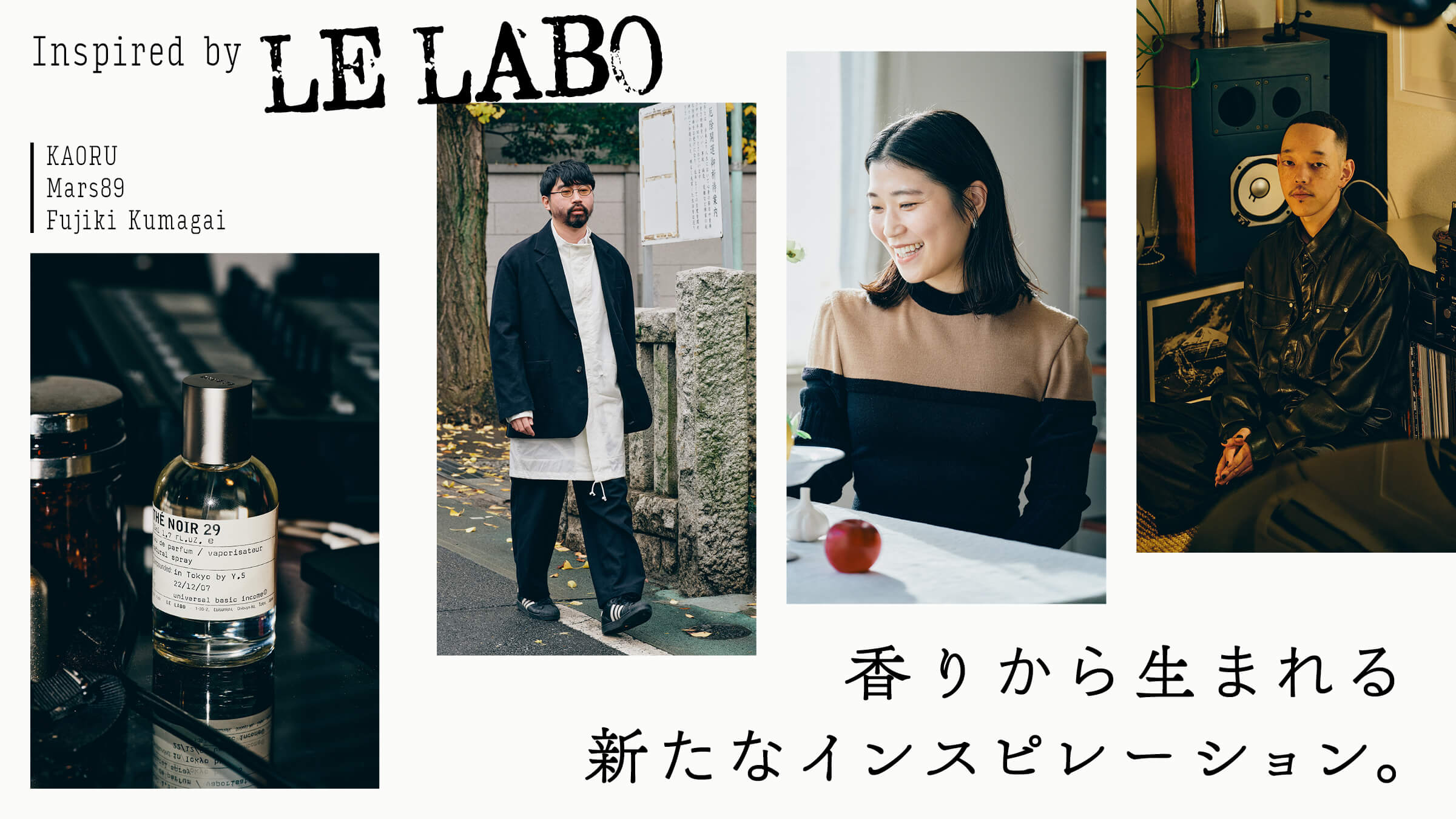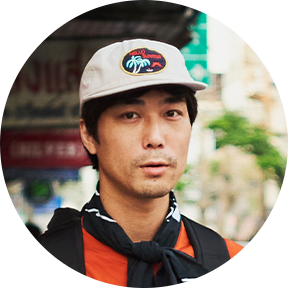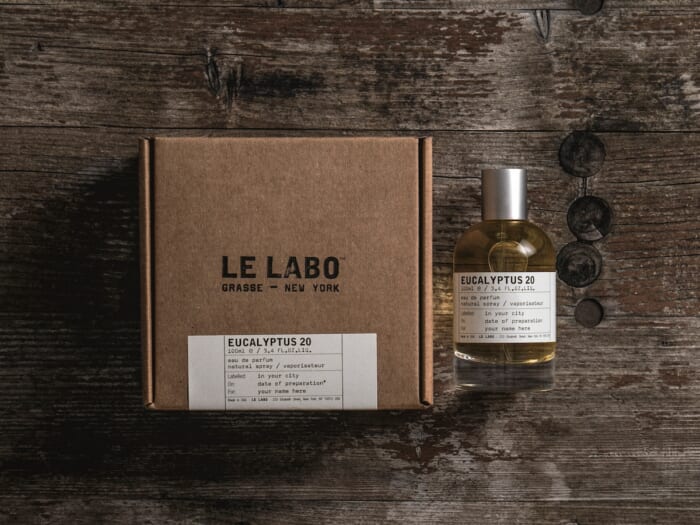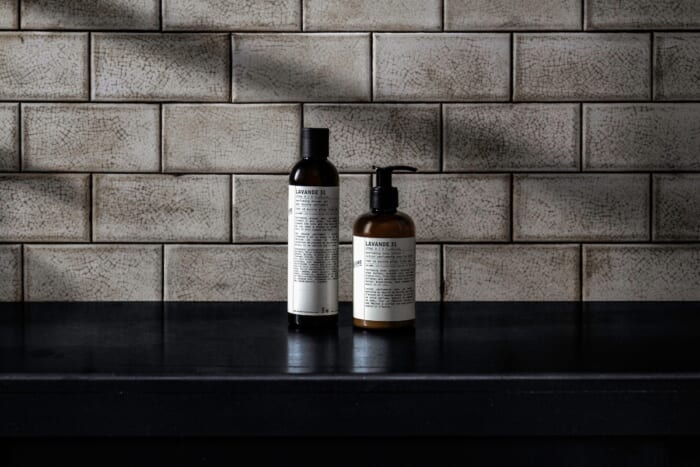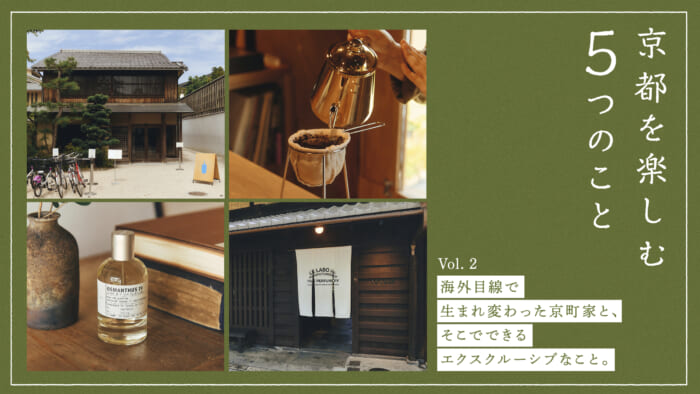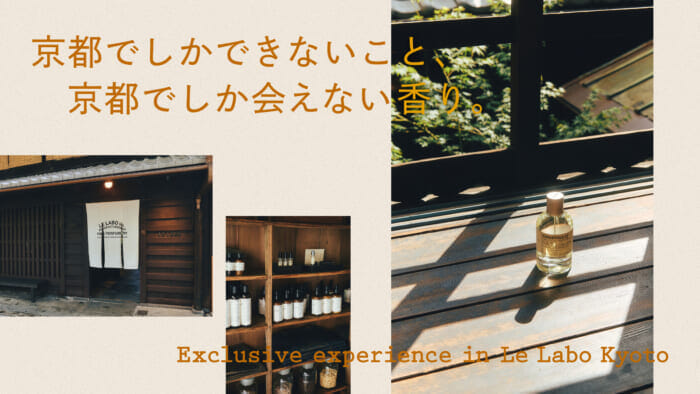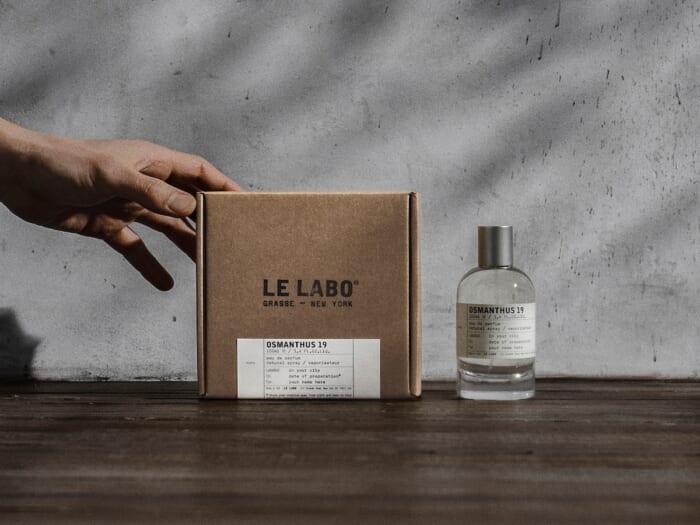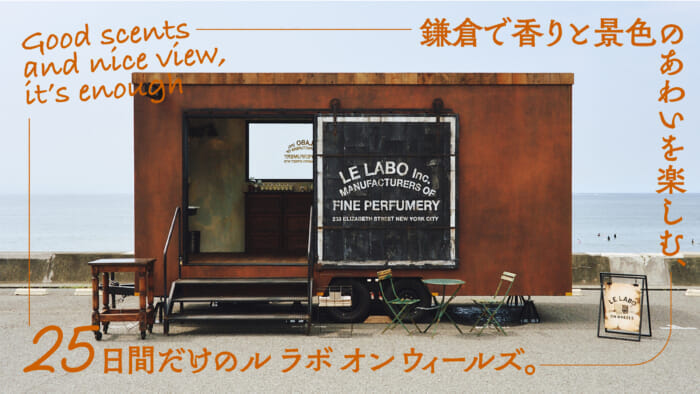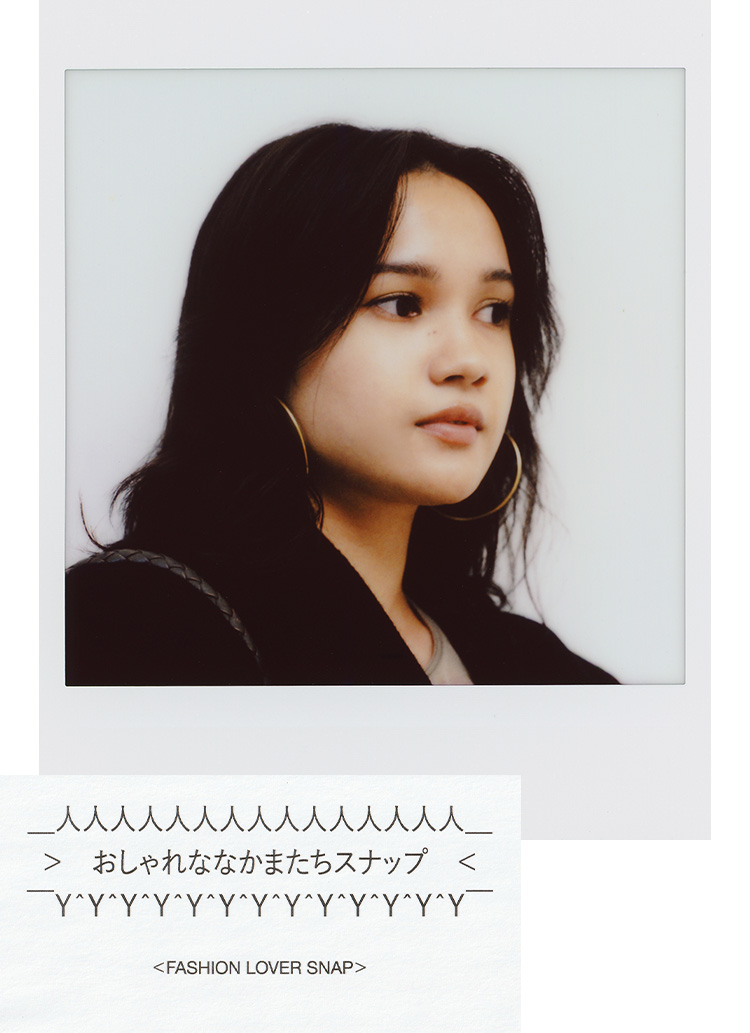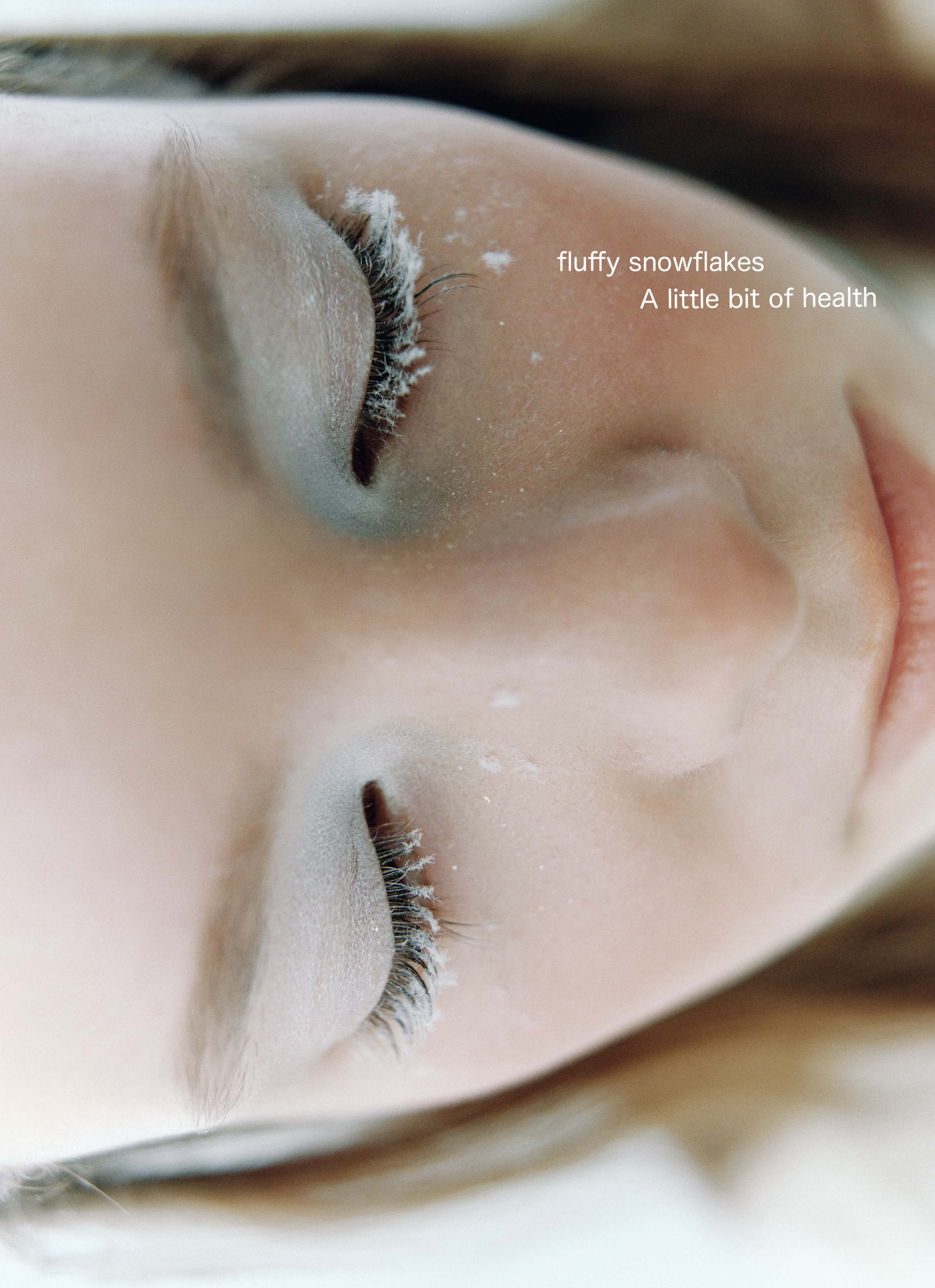Challenging aroma and food memories.

PROFILE
Food director who is active in a wide range of fields including advertising, magazines, and the Web. He is active in a wide range of fields centered on food, from developing corporate recipes to creating visuals for them. His work "Food On A Photograph," in which he photographs vegetables and other foodstuffs on top of black-and-white portraits, has attracted much attention, and in October of this year he published "shichimi magazine. The magazine is sold in Japan and abroad, and has attracted much attention, with pre-orders selling out.
Instagram:@dressthefoodkaoru
Do you usually use perfume?
KAORU:I don't put it on when I cook because the aroma mixes with the fragrance and confuses my brain. Because I don't usually wear it, when I put it on when I go out or on special occasions, my mood mode changes dramatically. I like fresh bergamot scents and jasmine scents such as lilac, but I especially like fig scents.
You chose "ROSE 31" this time. Do you have any reason?
KAORU:I chose a scent that I like to challenge myself with, not one that I normally wear. When I smelled it, I felt it had depth, with a smoky nuance, although it was mainly rose, as the name suggests.
The aroma was the source of inspiration for the menu and the video that was created by the food director.
KAORU:It was a different kind of fragrance from what I usually smell, so it wasn't as if an image popped into my head when I smelled it. For example, the scent of bergamot might immediately conjure up an image of a citrus-based food, but since I was there, I thought that would be boring (laughs). I feel that I want to keep changing without fear, so this time I was conscious of challenging myself in both the perfume selection and the creation of the video. For the video, I thought about how to visualize the image of the fragrance.

KAORU-san, you also upload your cooking process on your Instagram story.
KAORU:Usually I am conscious of filming the cooking process, focusing on the moment when the ingredients look beautiful, but this time, instead of using the fragrance of the perfume directly in the food, I thought about how to incorporate the fragrance and the image of roses into the video, and what I ended up creating was a salad. I felt that what was important was the smokiness of the fragrance, so I smoked salmon. I also used ingredients that reminded me of the color of roses, rather than the fragrance of roses...for example, pomelos and red gems.
The pink foodstuffs in the video are indeed impressive.
KAORU:I also like the yellow of the pomelo's outer skin and the hasty pink of the fruit inside. I also put rice vinegar on red onions and red-centered daikon radish, which is pink inside, and it reacts with the acid to change the color to pinkish. This worked better than expected and produced the rose color that I wanted to bring out.
How did it taste?
KAORU:When I tried it, I was surprised at how delicious it was (laughs). I usually love salads and make my own dressings, and I am particular about the textures and combinations of ingredients. I wrote down the salad I made this time because I wanted to make it into a new recipe.


I can feel your passion for salads.
KAORU:I grew up in a family where we were expected to eat so many salads that they were served in a bowl. I first came into contact with cooking when I helped tear and wash salad leaves. But if I go back even further, my original experience was helping my childhood friend make pastries at her house. I remember how much I enjoyed the aroma of baking pastries in the oven and how deliciously they turned out.
Aroma is also important in cooking, isn't it?
KAORU:When cooking, I am conscious of how it smells when I put it in my mouth. Then there is the balance of whether I want the aroma to be assertive or subdued. I am very sensitive to fragrance, and I have to wash the plates I use for eggs about three times before I notice the aroma. And if I'm grilling and leave the kitchen for a bit, I can tell how much heat is coming on by the aroma wafting through the air, When I am roasting cauliflower, I love the aroma of the food as it becomes more delicious.


Have you always been interested in food?
KAORU:I lived with my grandparents during my childhood, and everything my grandmother cooked and my mother cooked was delicious. I remember that both of them had a very good sense of taste, not so much for special dishes, but for what I would call home cooking. I remember that my grandmother taught me how to make black soybeans for Osechi over several years.
I have such wonderful memories of cooking together.
KAORU:It was my mother's recommendation, but as a high school student, I honestly felt that I had to go to my grandmother's house for three days during the busy season of studying and other activities... but now, looking back, I am only grateful. I learned many things from standing in the kitchen with my grandmother, such as the key to making black soybeans tasty: to wash the beans gently and carefully, to measure all the ingredients accurately, to put rusty nails that have been washed well and wrapped in gauze in the pot when cooking, and to add konnyaku, my grandmother's original. It may sound a bit corny, but even now, when I am cooking, I feel as if my grandmother is standing next to me.
I think the experience of being taught something and experiencing it together is something that will remain strongly in our memories.
KAORU:I am in charge of a Series on local cuisine in one of the media, in which I learn from elderly people who have been making local cuisine, and from them I create new dishes. There are no recipes for local cuisine, and there is a lot of saltiness that can't be put into words. There are many unspoken, yet important, steps that are taken. It is these unspoken parts of the recipe that give the dish its unique flavor. The flavor that is unique to that person is created through the gradual accumulation and transmission of experiences that cannot be expressed in words, and that cannot be found in a recipe. It was very moving to witness this.

[Claire] Le Labo.ROSE 31 ¥25,850[50ml](Le Labo Customer Service Center)
ROSE 31" has the gorgeous fragrance of Grasse roses, but with a calm sweetness that can be used by unisex customers. The message on the label is "dress the food," which KAORU is the president of the company.


